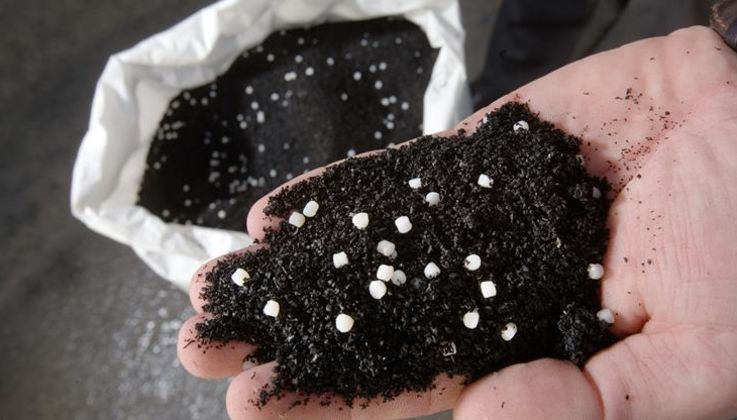
We help bio-based raw materials look good
Bio-based synthetic materials help to reduce CO2 emissions and slow down climate change. Green polymer materials have long served uses beyond technical applications – for example in the fashion industry.
What we are doing:
Evonik used approximately 1 million metric tons of renewable resources in 2018 – a share of 9.7 percent of its total raw materials base.
The polyamide fibers spun from Evonik's high-performance polymer VESTAMID® Terra are a special example of a fully bio-based product. Remarkably, the innovative fibers can be processed into a wide range of textile applications. For example, they can be turned into an Italian designer fabric for evening gowns, functional sportswear, or durable upholstery materials.
The high-tech textile fibers offer both maximum wearing comfort and unsurpassed performance. They not only are extremely lightweight, flexible, and breathable, but also have an odor-inhibiting effect in high-quality fabrics thanks to their lasting natural bacteriostatic properties. In addition, they dry quickly and don’t need ironing.
Zips and clips are also made from VESTAMID® Terra, so that clothes, jackets, sleeping bags or backpacks can be conveniently closed and worn. Everything from one material - the prerequisite for high-quality recycling.
VESTAMID® Terra is produced from the seeds of the castor bean plant. The harvested oil has an unusually homogeneous composition and is therefore particularly well suited for chemical synthesis.
However, the plant is also ideal from the perspective of sustainability. Because it can survive long periods of drought, it can be grown in arid areas, which would not otherwise be suited to any other form of agriculture. VESTAMID® Terra therefore has no adverse effect on the human food chain - unlike various other biopolymers, which are based on natural products grown on agricultural lands.
There currently are two variants of VESTAMID® Terra, a polyamide 610 and a polyamide 1010, which differ in their property profile and close gaps in the previous property spectrum of polyamides. Studies have demonstrated that bio-based polyamides show positive performance, especially in their greenhouse gas savings potential and in terms of primary energy demand. They are durable, resistant and offer opportunities for further demanding applications, for example in the automotive or sports industry.



